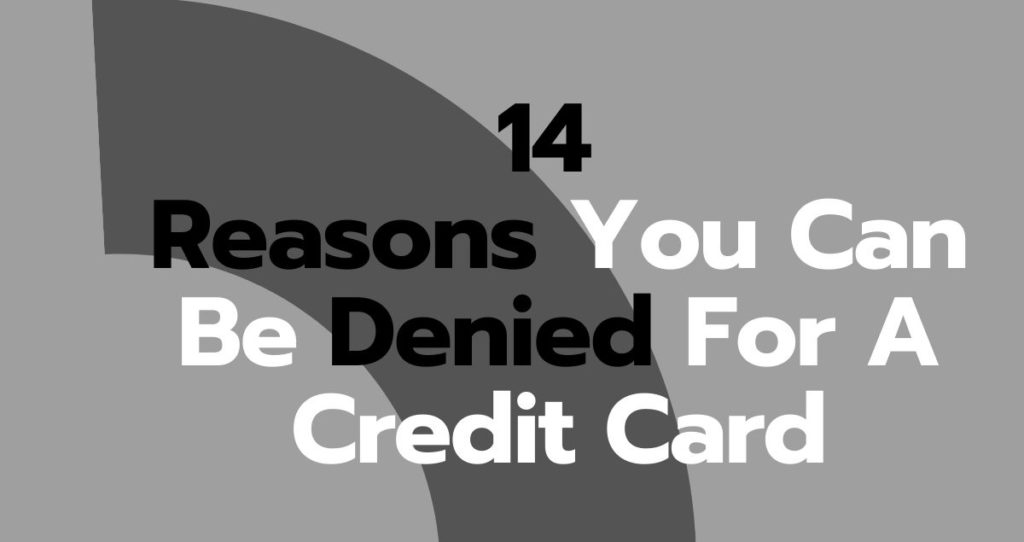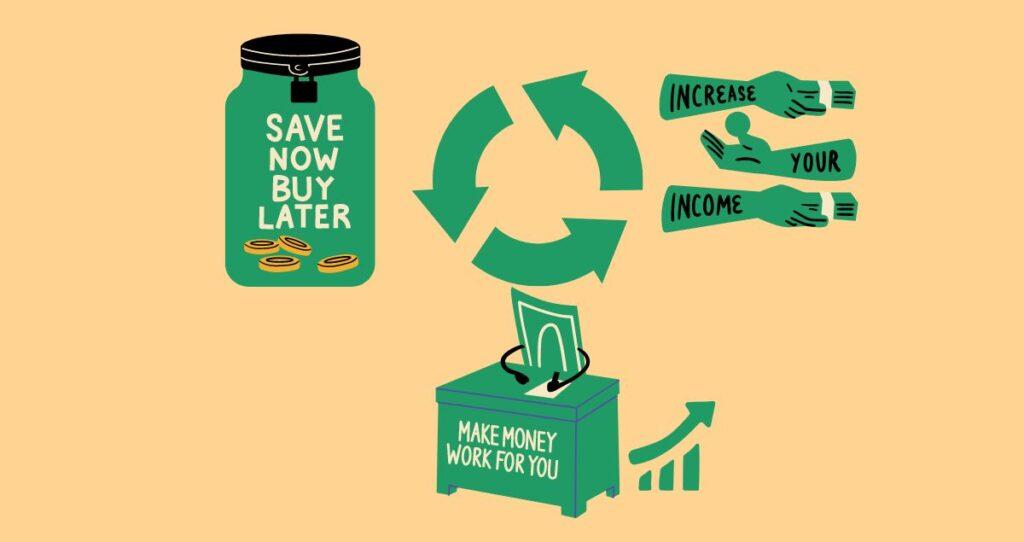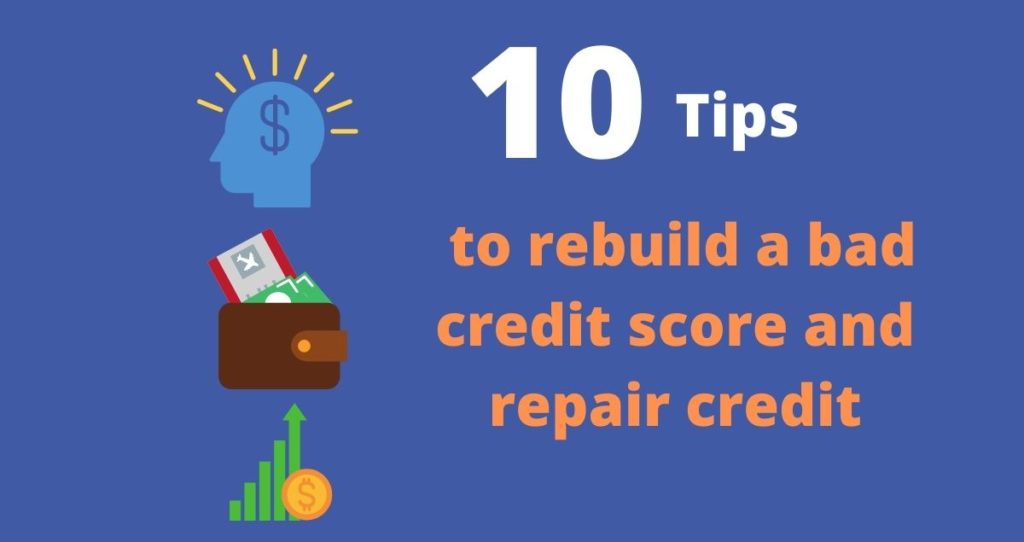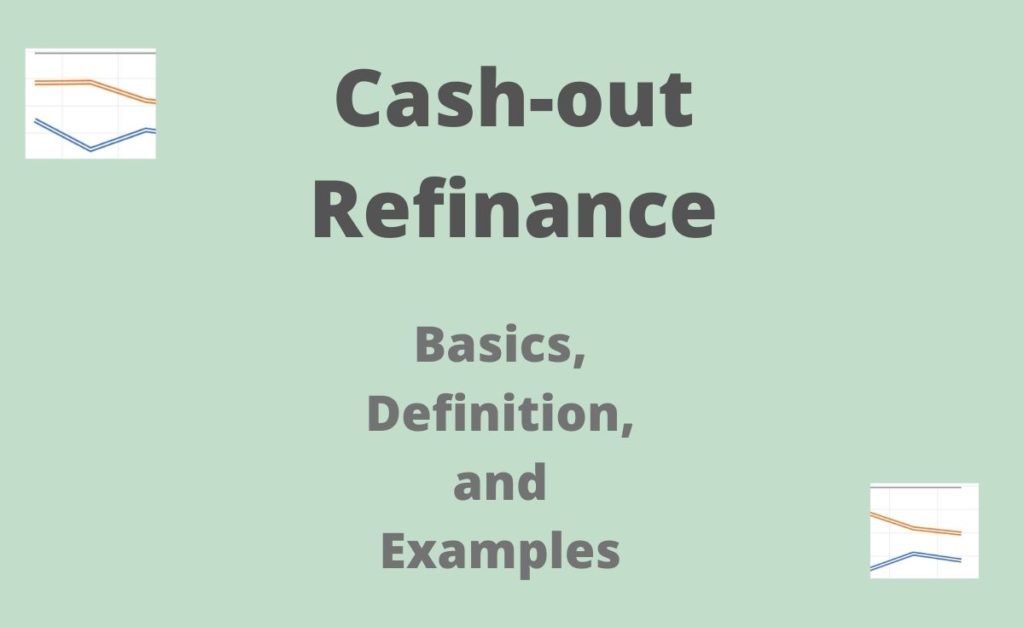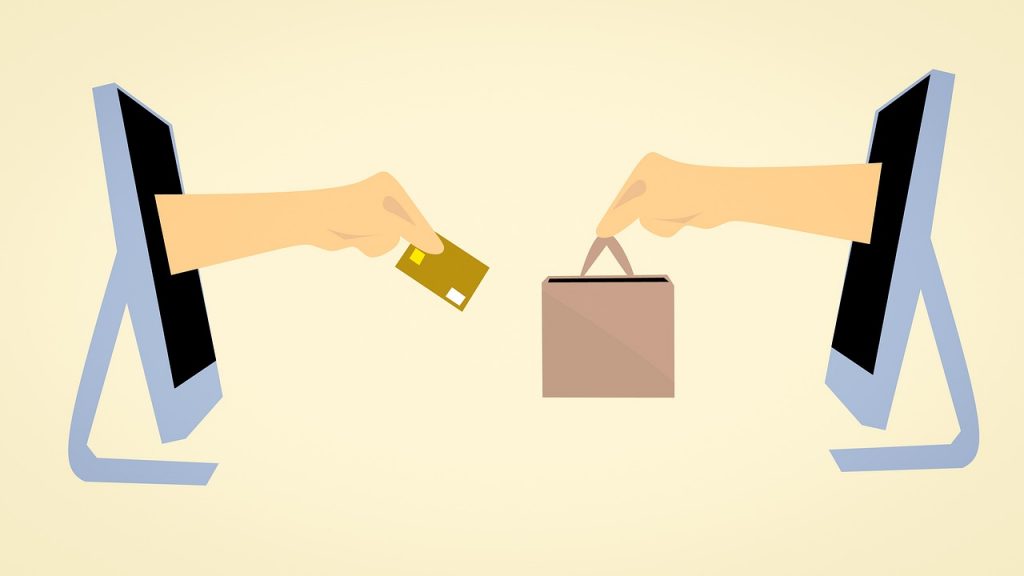Can anyone be denied for a credit card? If you want to apply for a credit card, you must know that there are chances that your application will be denied.
In this article, I will walk you through possible reasons you will be denied for a new credit card.
1. You never had credit before
Investors do not trust people with no credit history. There is no way credit issuers will know if you are financially responsible without a credit history.
This is why many credit applications require some form of credit history in order to approve new applicants.
If your credit card application has been denied due to the lack of credit history, consider building your credit history before you apply for another credit card. The following related article can help you build your credit history without using a credit card.
Related article: How to build credit without a credit card?
After you have built credit history, it will be easy for you to get a credit card.
2. You have late or missed payments on your credit profile
Credit card issuers like people who treat debt seriously. Your payment history is the most important factor creditors use when judging your creditworthiness.
Because of this reason, your payment history takes up 35% of your credit score calculation.
Missing payments will turn you into a risky borrower. As a result, no company will want to lend you money and if they do, you will pay a lot of interest on that credit.
Late payments will have a negative impact on your credit report as well. Having late payments on your account will imply that you are irresponsible when it comes to your bills and therefore, you can’t be trusted. It is like telling your lenders that you need their money and you will not pay them back.
If you think you will apply for credit in the near future, make sure that you pay all your bills on time. Otherwise, it will be impossible for you to get a credit card.
3. You recently had a foreclosure or a bankruptcy
Foreclosures, bankruptcies, tax liens, and related events show on your credit report as derogatory marks. They show that you are financially distressed and it is impossible for you to meet your payment obligations.
Derogatory marks will stay on your credit report for 7 years or more and will affect your credit score.
If you are considering getting a credit card in the near future, keep your record clean by avoiding derogatory marks.
4. You overused your credit cards
Overusing your credit cards means that you depend on them for your expenses. It could be an indication that your income is not enough to cover all your expenses.
Because of this reason, there are higher chances that you will not be able to pay off your debts in the near future.
Your credit utilization makes 30% of your credit score calculation. Moneylenders think you are in a bad shape financially when you overuse your credit cards. The rule of thumb is to use no more than 30% of your total credit limit. For example, if your total credit limit is $10,000, try to use less than $3,000. The lesser you use your credit card the better.
For this reason, there is a higher chance that you will be denied when you try to apply for more credit cards. Why would they give you more credit cards, if you do not use responsibly the ones you have already?
If you are planning to apply for more credit cards, reduce your credit card usage. Having much lower credit usage will increase your approval rate.
5. You have a lot of hard inquiries
Hard inquiries appear on your credit report every time money lenders request to see your credit profile. For example, if you apply for a loan, your bank will know your credit history by running a hard pull on your report. This will result in a hard inquiry on your credit report.
Hard inquiries will stay on your report for 24 months. A recent hard inquiry indicates that you recently applied for credit. Having many hard inquiries on your report sends a bad message to creditors.
In other words, money lenders think that you are in a financial crisis and desperate for credit. Because of this reason, your credit card application could be denied.
Related article: How long do hard inquiries stay on a credit report?
6. You recently got denied a credit card
If you got denied for a credit card, there are chances that other credit card issuers will deny you. If one company found you as a risky borrower, other companies could do the same.
Stop applying for other credit cards and focus on the reasons they denied you. This will give you enough time to restructure your financial situations and improve your credit report. As, a result, you will increase your chances of getting a credit card next time you apply.
7. Your credit score is bad
Your credit score is very important when it comes to loan applications and related financial services.
This mysterious number shows how financially responsible you are and determines if you get approved or denied for more credits.
You need a good credit score in order to qualify for more credits. If your score is not good, consider improving it before applying for another credit card.
Related article: 8 tips you can use to improve your credit score
8. You are between 18-21 years old
There is an age limit when it comes to approving credit card applications. If you are between 18-21 years old, it will be difficult to get a credit card. This is because moneylenders will not consider you old enough to take care of financial responsibilities.
In addition, you have not built enough credit history at this age. For these reasons, your credit card application will likely be denied.
What you can do, however, is to use a co-signer. A co-signer will be either your guardian or a parent. He/she will act on your behalf and be held responsible if you fail to meet your credit card obligations.
Your co-signer must have a good credit score and a steady income to prove that they will be able to cover your credit card payments when you can’t do it yourself.
You can also become an authorized user of a credit card. That is a person who has a credit card can add you to his/her account. This will give you access to a credit card and help you build your credit score.
Make sure that the credit issuer submits the credit card activities to credit reporting companies (Equifax, TransUnion, Experian) for both of you. Otherwise, your contribution on this credit account will not benefit you.
Another option you can use is to get a secured credit card. This credit card will let you deposit money on it and use it based on how much you deposited.
Your credit limit will be limited to how much you deposit. However, you will build your credit history and improve your credit score. This technique will give you a chance to qualify for regular credit cards in the future.
9. You are under 18 years old
Credit card issuers will not give you a credit card if you are under 18 years old, according to Experian.
The only way you can have access to a credit card is to become an authorized user. Your parent or a guardian can add you to their credit card account and let you use it.
This will help you build your credit history and improve your credit score at an early age.
10. Your credit history is not old enough
The longer your credit history is, the more credit card issuers trust you. If your credit age is not old enough, you could be denied for more credit.
This is because there is not enough data to help credit card issuers to understand how financially responsible you are. You could be classified among risky borrowers if your credit history is not old enough.
This will lead to credit card application denial.
11. Your credit age is low
Your credit age could hinder your credit card application approval. The credit card age is the average in years or months of all open credit card accounts you have. If you recently got your first credit card, the age of your credit will be in months.
This credit age is not enough for money lenders to evaluate your credit card usage behaviors. As a result, they could deny your application for more credit cards.
12. You do not make enough money
Your income will determine your credit card approval rate. The more money you make, the easier it will be for you to be approved. A higher-income implies that you will have enough money to meet your credit card expenses.
On the contrary, if your income is low, it will be difficult for you to be accepted.
Even if you get accepted, you will qualify for a lower credit limit.
Your credit limit could be increased as you increase your income and use your credit card wisely.
13. You have been unemployed for a while
You cannot pay off your credit cards without working. This is why you will never be accepted if you don’t work.
Before you apply for a credit card, find a job first. Work for a few months to show that you have stable employment. This will increase your credit card approval rate.
14. You have recent criminal records
Recent criminal records may reduce your approval rate. Credit card issuers will classify you as a risky borrower. This is because your chances of getting and keeping a job are minimal.
As a result, they think that you could fall behind on your payments.
